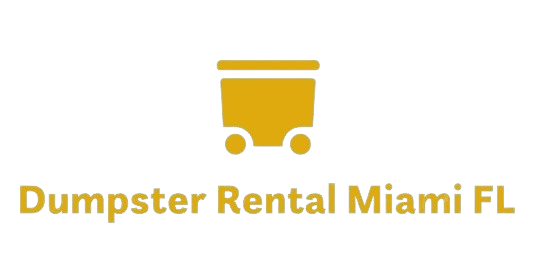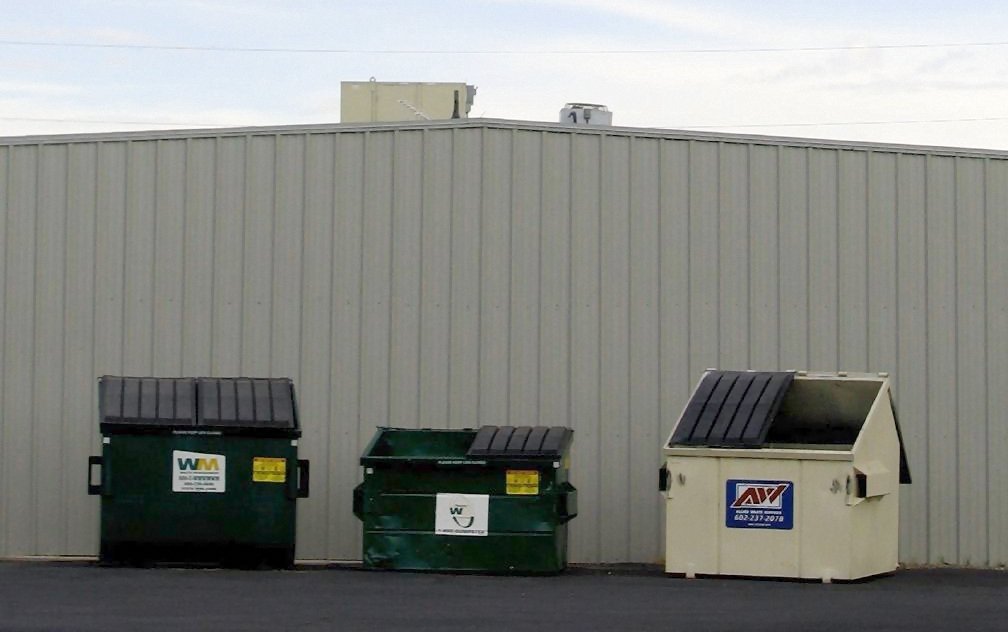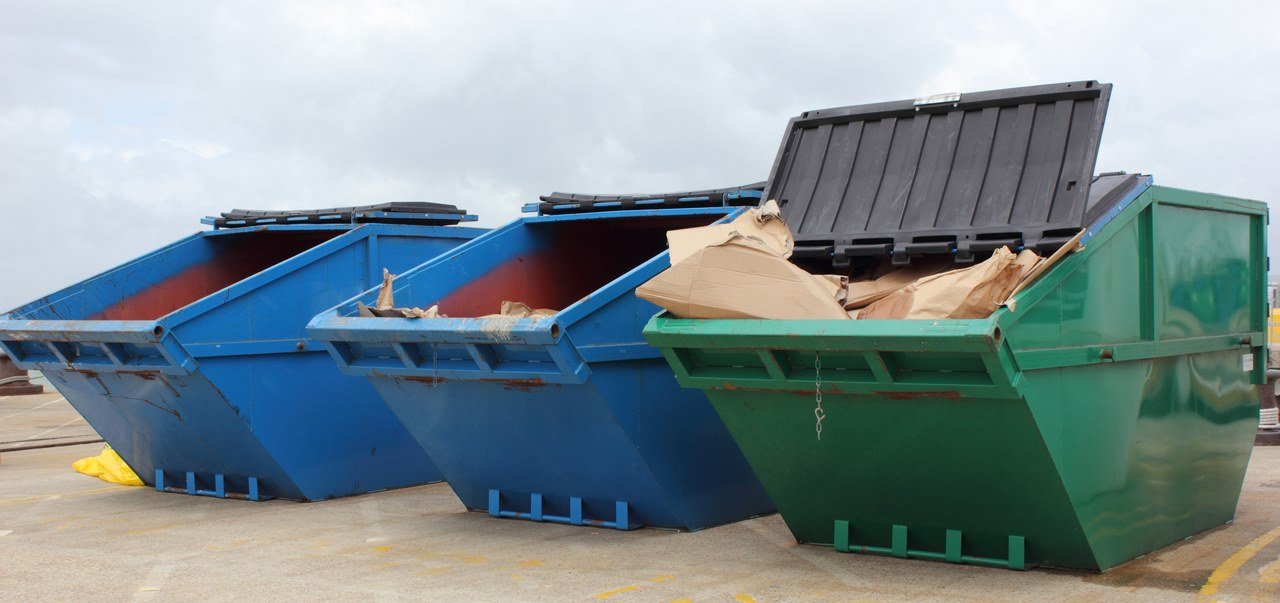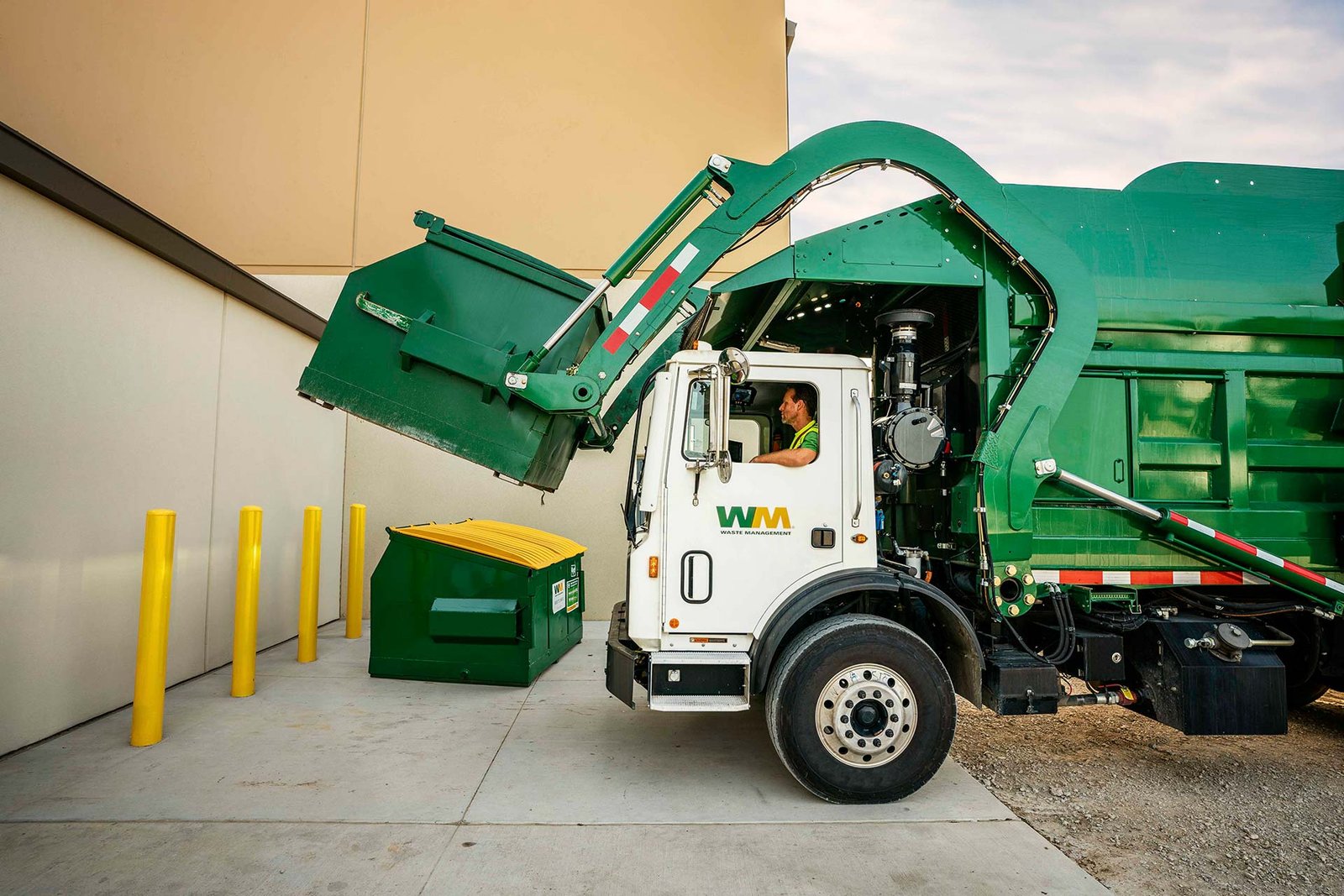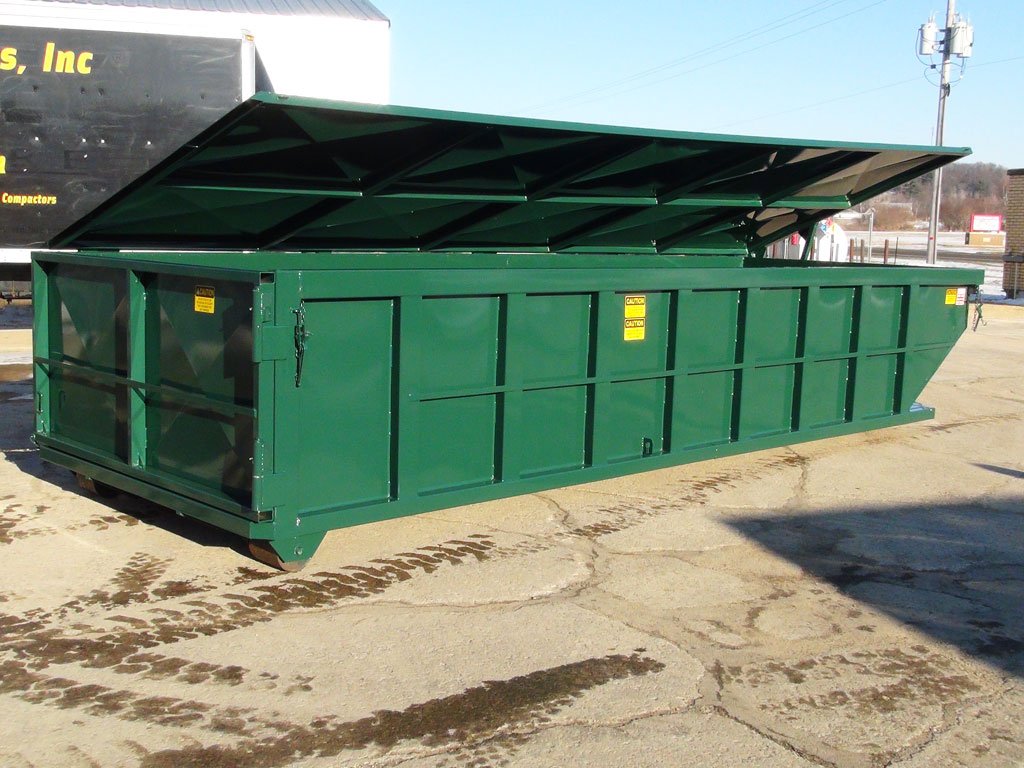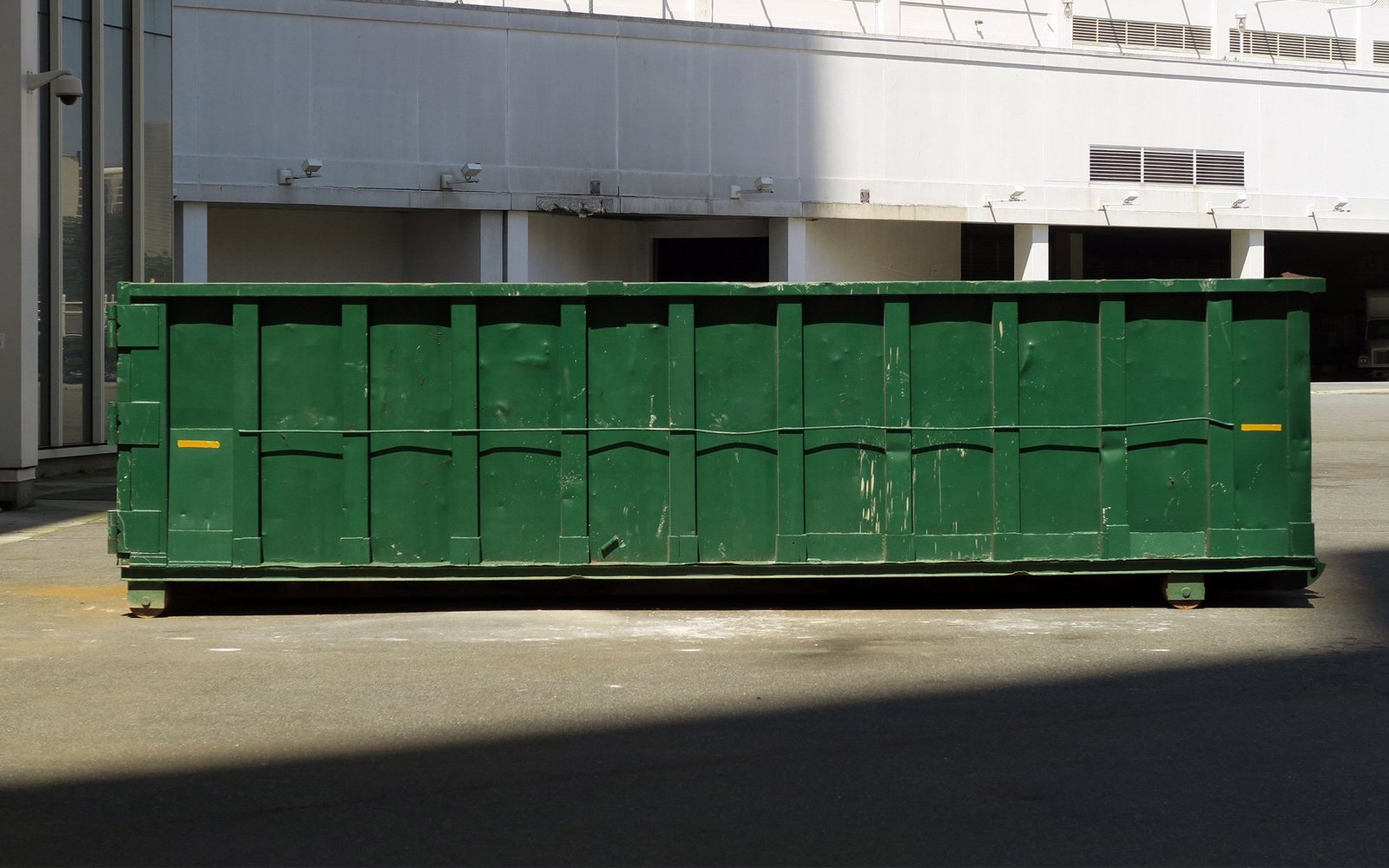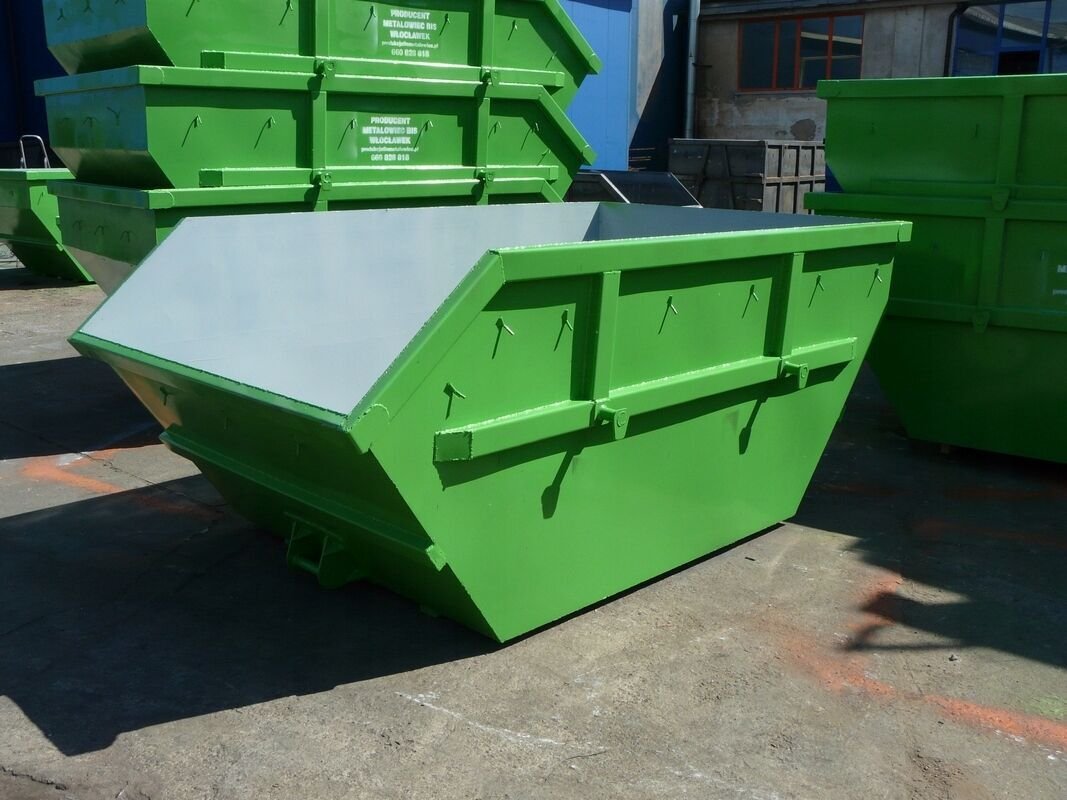Dumpster rental services have become increasingly popular in Miami, FL, as individuals and businesses seek efficient waste management solutions. However, it is crucial to be aware of the permit requirements and regulations associated with dumpster rentals in this city. Failure to comply with these guidelines can result in hefty fines and legal consequences. To illustrate the importance of adhering to these requirements, let us consider a hypothetical scenario: A construction company decides to rent a large dumpster for their project without obtaining the necessary permits from the local authorities. As a result, they face significant penalties that not only impact their finances but also delay their work progress.
Understanding the specific permit requirements and regulations related to dumpster rentals is vital for anyone planning on utilizing such services in Miami, FL. This article aims to provide an overview of the essential guidelines set forth by local authorities concerning dumpster rentals. By examining both real-life examples and theoretical scenarios, we will explore how failure to comply with these regulations can lead to severe repercussions for individuals and businesses alike. It is imperative that one familiarizes themselves with these rules so as not to fall afoul of the law while efficiently managing waste disposal needs within the city limits.
Types of Dumpster Rentals Available in Miami FL
Imagine you are a homeowner in Miami, Florida, tackling a major renovation project. The debris from the construction work is piling up, and you need an efficient solution to dispose of it responsibly. This is where dumpster rentals come into play. In this section, we will explore the different types of dumpster rentals available in Miami, highlighting their specific uses and benefits.
Dumpster Rental Options:
-
Temporary Roll-Off Dumpsters:
One popular option for homeowners and contractors alike is the temporary roll-off dumpsters. These large containers can be easily delivered to your location and picked up once they are full or when your project is complete. They offer convenience and flexibility by providing ample space for disposing of various materials such as concrete, wood, metals, and general household waste. -
Commercial Front Load Dumpsters:
For businesses that produce a significant amount of waste on a regular basis, commercial front load dumpsters are often the preferred choice. These sturdy and durable dumpsters feature lids to protect against weather elements and prevent scavenging animals from accessing the contents within. With frequent pick-up schedules tailored to meet business needs, these dumpsters ensure efficient waste management without disrupting daily operations. -
Recycling Dumpsters:
In line with Miami’s commitment to sustainability, recycling dumpsters are becoming increasingly popular options for those looking to minimize environmental impact during their projects. These specialized containers are designated solely for recyclable materials like plastics, paper products, cardboard boxes, glass bottles, and aluminum cans. By separating recyclables at the source using dedicated recycling dumpsters, individuals can contribute directly to reducing landfill waste. -
Construction Debris Boxes:
Construction projects often generate substantial amounts of debris that require proper disposal methods to maintain safety standards at work sites. Construction debris boxes provide an ideal solution for efficiently managing materials such as drywall scraps, roofing shingles, bricks, tiles, and other building-related waste items.
- Ensure a clean and organized work environment.
- Minimize the risk of accidents caused by debris cluttering the site.
- Optimize waste management practices to adhere to environmental regulations.
- Promote sustainability efforts in line with Miami’s eco-conscious initiatives.
Emotional table:
| Dumpster Type | Benefits |
|---|---|
| Temporary Roll-Off | – Ample space for various materials |
| – Convenient delivery and pickup | |
| Commercial Front Load | – Lid provides protection against weather elements |
| – Regular pick-up schedules tailored to businesses’ needs | |
| Recycling | – Dedicated containers for recyclable materials |
| – Direct contribution to reducing landfill waste | |
| Construction Debris Boxes | – Efficient management of construction-related waste |
In summary, dumpster rentals offer practical solutions for managing different types of waste generated during projects in Miami. Whether it is a residential renovation or a commercial construction endeavor, there are various options available to meet specific requirements.
Size Restrictions for Dumpster Rentals in Miami
Having explored the various types of dumpster rentals available in Miami, it is important to understand the permit requirements and regulations associated with such rentals. By gaining insight into these factors, individuals can ensure a smooth and compliant process when renting dumpsters for their specific needs.
Permit Requirements and Regulations:
To illustrate the importance of complying with permit requirements and regulations, let’s consider a hypothetical scenario involving a construction company that rents a 20-yard dumpster for a renovation project in downtown Miami. Without obtaining the necessary permits or adhering to local regulations, this company could face fines or penalties, potentially disrupting their operations and delaying project completion.
Here are some key points to keep in mind regarding dumpster rental permits and regulations in Miami:
- Permits: Before placing a dumpster on public property or within city limits, it is generally required to obtain a permit from the appropriate governing authority. This includes permission to occupy space on sidewalks or streets during the rental period.
- Zoning Restrictions: Different areas within Miami may have specific zoning restrictions that impact where dumpsters can be placed. It is crucial to review these restrictions beforehand to avoid any violations.
- Prohibited Items: There may be certain materials that cannot be disposed of in rented dumpsters due to environmental concerns or local regulations. Examples include hazardous waste, flammable liquids, asbestos-containing materials, and medical waste.
- Weight Limits: Municipalities often impose weight limits on dumpsters to protect roads and infrastructure. Exceeding these limits can result in additional fees or penalties.
Renting a dumpster without proper permits or disregarding regulations can lead to significant consequences:
- Financial implications including fines and penalties
- Potential delays in project timelines
- Damage to reputation due to non-compliance
- Negative impact on the environment and public safety
| Permit Requirements | Regulations |
|---|---|
| Obtain necessary permits from governing authority | Adhere to zoning restrictions |
| Ensure compliance with weight limits | Avoid disposing prohibited items |
duration and cost considerations.
Duration and Cost of Dumpster Rentals in Miami FL
Previous section H2 Transition: Having discussed the size restrictions for dumpster rentals in Miami, it is important to understand the permit requirements and regulations associated with such rentals. By adhering to these guidelines, individuals can ensure a smooth and hassle-free rental experience.
Permit Requirements:
Obtaining a permit is an essential step before renting a dumpster in Miami. The city has specific regulations in place to maintain public safety and prevent any potential issues that may arise from improper disposal of waste. To illustrate this point, let’s consider the case of Mr. Johnson, who recently rented a dumpster without obtaining the necessary permits. Due to his oversight, he faced hefty fines and delays during the removal process.
To avoid similar complications, here are some key permit requirements for dumpster rentals in Miami:
- Permits must be obtained prior to placing a dumpster on public property.
- A copy of the permit should be visibly displayed on the container at all times.
- The duration of the permit typically ranges from 14 to 30 days.
- It is crucial to comply with location-specific rules outlined by local authorities when selecting placement areas for dumpsters.
Regulations Associated with Dumpster Rentals:
In addition to acquiring permits, there are several regulations individuals must adhere to while renting dumpsters in Miami. These regulations aim to protect both residents and the environment from potential hazards caused by improper waste management practices. To highlight these regulations further, let’s examine a hypothetical scenario involving Ms. Rodriguez, who disregarded certain rules while disposing of construction debris.
Here are some key regulations that govern dumpster rentals in Miami:
| Regulation | Description |
|---|---|
| Prohibited Materials | Certain items such as hazardous chemicals, flammable substances, and electronic waste cannot be disposed of in dumpsters due to environmental concerns. |
| Weight Restrictions | Dumpsters have weight limits imposed by local authorities; exceeding these limits may result in additional charges. |
| Overfilling Restrictions | Dumpsters should not be filled above the designated height, as it poses safety hazards during transportation and disposal. |
| Proper Disposal Methods | Waste materials must be sorted and disposed of correctly to ensure compliance with recycling guidelines set by the city. |
By familiarizing yourself with these regulations, you can avoid potential penalties and contribute to a cleaner and safer Miami.
Understanding the permit requirements and regulations is crucial when renting a dumpster in Miami FL. However, it is equally important to be aware of location restrictions that may impact your rental experience.
Location Restrictions for Dumpster Rentals in Miami
Dumpster Rental in Miami FL: Permit Requirements and Regulations
Duration and Cost of Dumpster Rentals in Miami FL
When considering a dumpster rental in Miami, it is important to be aware of the permit requirements and regulations that govern the process. Failure to comply with these guidelines can result in fines or other penalties. To illustrate this point, let’s consider a hypothetical scenario:
Imagine you are a homeowner planning a major renovation project in your house. You decide to rent a dumpster to efficiently dispose of construction debris, but you neglect to obtain the necessary permits. Unfortunately, your neighbor reports the unauthorized placement of the dumpster, leading to an inspection by local authorities. As a result, you face hefty fines for non-compliance.
To avoid such situations, here are some key permit requirements and regulations for dumpster rentals in Miami:
- Permit Application Process:
- Contact the local government office responsible for issuing permits.
- Complete the application form providing details about your project.
- Pay any associated fees required for obtaining the permit.
- Placement Restrictions:
- Ensure that dumpsters are placed on private property or designated areas approved by local authorities.
- Avoid obstructing public sidewalks, roadways, or utilities.
- Adhere to specific setback distances from structures as per local regulations.
- Duration Limitations:
- Most permits allow dumpsters to be rented for up to 30 days initially.
- Extensions may be possible upon request but will require additional permitting.
- Waste Types:
- Certain hazardous materials like chemicals, flammable substances, or biohazardous waste cannot be disposed of using standard dumpsters.
- Check with local authorities regarding proper disposal methods for these specialized wastes.
Such compliance measures not only ensure smooth operations during your project but also contribute towards maintaining environmental standards and community safety.
Location Restrictions for Dumpster Rentals in Miami
Proper Waste Disposal Guidelines for Miami Dumpster Rentals
Miami has specific location restrictions for dumpster rentals to ensure the safety and well-being of its residents. Understanding these regulations is crucial before renting a dumpster in the city. To illustrate, let’s consider a hypothetical scenario where John, a resident of Miami, wants to rent a dumpster for his home renovation project.
Firstly, it is important to note that certain areas within Miami have zoning restrictions that prohibit the placement of dumpsters. These areas include residential neighborhoods with narrow streets or limited parking space. For instance, if John resides in a neighborhood characterized by tight spaces and restricted access, he may need to explore alternative options such as using smaller disposal containers or utilizing designated waste collection sites.
Secondly, Miami also imposes distance requirements when it comes to placing dumpsters near public facilities. This regulation ensures that dumpsters do not obstruct pedestrian pathways or hinder emergency services’ accessibility. In our hypothetical case study, John needs to be mindful of locating the rented dumpster at an appropriate distance from schools, hospitals, fire stations, and other public amenities.
Thirdly, environmental considerations play a significant role in determining dumpster rental locations in Miami. The city aims to protect sensitive ecosystems and prevent pollution caused by improper waste disposal. Therefore, individuals like John must avoid placing dumpsters near bodies of water or environmentally protected areas such as parks and wetlands.
To emphasize the importance of adhering to location restrictions while renting dumpsters in Miami and evoke an emotional response from readers regarding their responsibility towards their community and environment:
- Disregarding location restrictions can lead to fines or penalties.
- Violating these regulations can result in disruptions to daily life for residents living nearby.
- Improper placement of dumpsters may cause damage to public property.
- Neglecting environmental considerations can harm natural habitats and wildlife.
The table below provides examples of prohibited locations that should be avoided when renting a dumpster in Miami:
| Prohibited Locations | Reason |
|---|---|
| Sidewalks | Obstruct pedestrian pathways |
| Street Corners | Impede traffic flow |
| Storm Drains | Cause water pollution |
| Protected Areas | Damage environmentally-sensitive areas |
Understanding and adhering to these location restrictions is crucial for individuals like John, as it ensures a safe and sustainable waste management process in Miami. By following these regulations, residents can contribute to maintaining the well-being of their community.
Moving forward, let’s explore the proper waste disposal guidelines that should be followed when renting dumpsters in Miami.
Penalties for Violating Dumpster Rental Regulations in Miami
Having understood the proper waste disposal guidelines for Miami dumpster rentals, it is essential to also familiarize ourselves with the permit requirements and regulations associated with this service. By adhering to these regulations, we can ensure a smooth and legally compliant experience when renting dumpsters in Miami.
Permit Requirements:
Before using a dumpster rental service in Miami, individuals or businesses may be required to obtain certain permits. These permits are necessary to comply with local laws and regulations concerning waste management. Failure to acquire the appropriate permits can result in fines or other penalties.
To illustrate this point further, let us consider an example scenario. Suppose a construction company wishes to rent a dumpster for a demolition project in downtown Miami. Before commencing work, they must secure the necessary permits from the city’s building department. This ensures that waste generated during their project is disposed of properly and does not pose any environmental or public health risks.
Regulations:
In addition to obtaining permits, there are specific regulations governing dumpster rentals in Miami that need to be followed:
- Placement Restrictions: Dumpsters should not obstruct sidewalks, roadways, fire hydrants, or emergency exits.
- Weight Limitations: There might be weight restrictions imposed on dumpsters depending on their size and capacity.
- Prohibited Materials: Certain materials such as hazardous waste, flammable substances, or chemicals cannot be disposed of in rented dumpsters.
- Time Limits: Dumpster rental periods may have predefined time limits before additional fees apply.
These regulations aim to maintain cleanliness and safety within the community while minimizing any negative impact on the environment. It is crucial for renters to adhere strictly to these rules throughout their rental period.
Table – Emotional Response Evoking Example:
| Regulation | Impact |
|---|---|
| Placement Restrictions | Ensures easy access for pedestrians and emergency services. |
| Weight Limitations | Prevents overloading of dumpsters, reducing potential accidents. |
| Prohibited Materials | Safeguards against hazardous waste contamination and fire hazards. |
| Time Limits | Encourages prompt disposal, avoiding excessive clutter in public spaces. |
By complying with the permit requirements and regulations outlined above, individuals or businesses can contribute to a cleaner and safer environment in Miami.
In summary, dumpster rental in Miami requires obtaining the necessary permits according to local laws and adhering to specific regulations governing its use. Compliance with these guidelines ensures proper waste management while minimizing any adverse effects on the community and the environment. By understanding and following these rules diligently, renters can make their dumpster rental experience in Miami both legally compliant and environmentally responsible.
